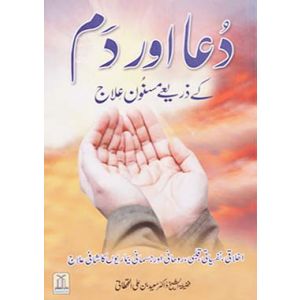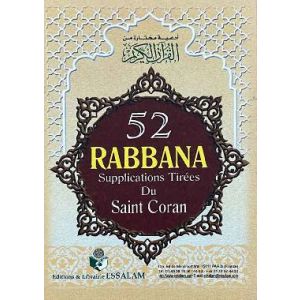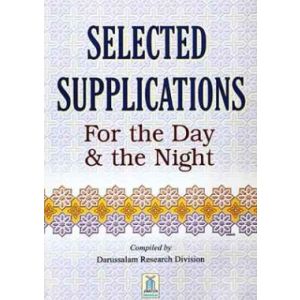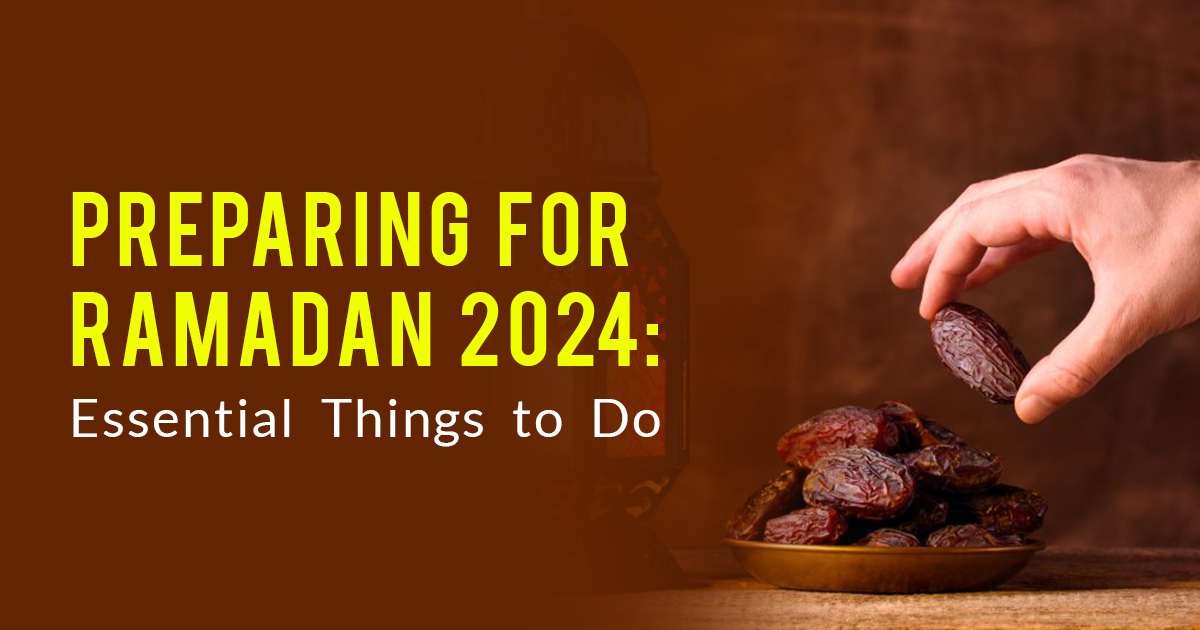We use cookies to make your experience better. To comply with the new e-Privacy directive, we need to ask for your consent to set the cookies. Learn more.
RABBANA ZALAMNA ANFUSANA Full Dua: Meaning and Significance
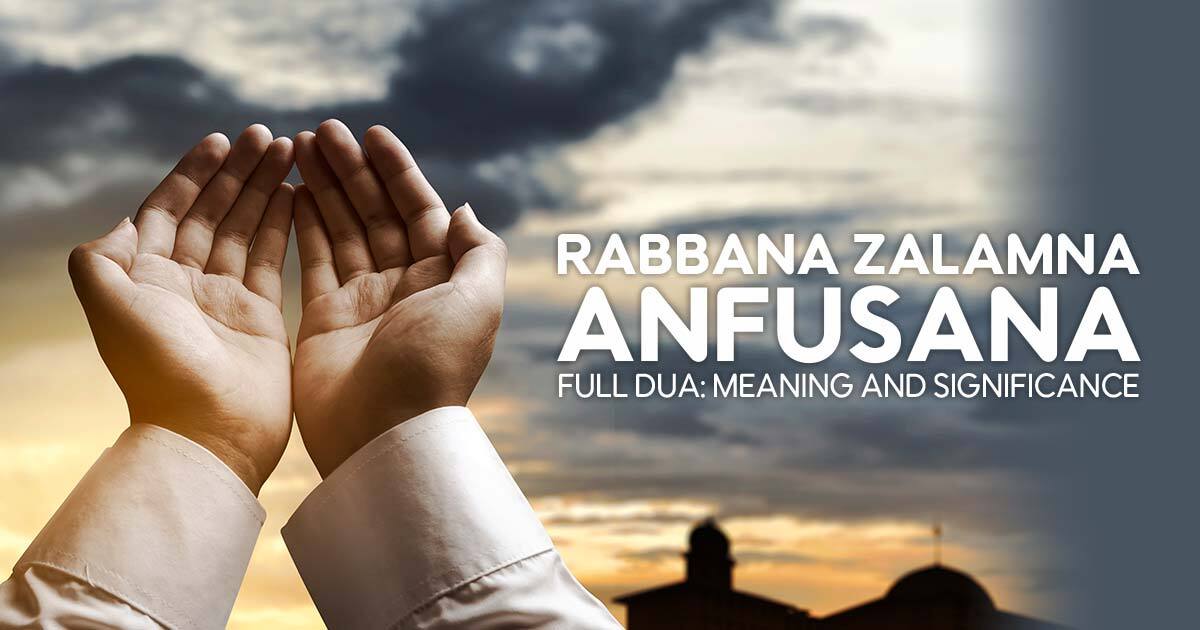
RABBANA ZALAMNA ANFUSANA Full Dua: Meaning and Significance
In the vast landscape of Islamic supplications, the Rabbana Zalamna Anfusana dua holds a profound significance. Translating to "Our Lord, we have wronged ourselves," this dua encapsulates humility, repentance, and the acknowledgment of human fallibility before the divine.
In this comprehensive blog by Darussalam, we delve into the meaning, significance, and spiritual depth of this powerful invocation.
Meaning of Rabbana Zalamna Anfusana Dua:
Breaking down the dua into its components elucidates its profound essence:
"Rabbana" - "Our Lord," signifies recognition of Allah's sovereignty and mercy:
1. This first part of the dua emphasizes the acknowledgment of Allah's divine authority and mercy over His creation.
2. By addressing Allah as "Our Lord," individuals express their submission to His will and authority.
3. Recognizing Allah's sovereignty reminds believers of His infinite wisdom and power, instilling a sense of awe and reverence.
"Zalamna" - "We have wronged," acknowledges personal accountability for our actions:
1. The inclusion of "Zalamna" highlights the recognition of human fallibility and the propensity to err.
2. By admitting wrongdoing, individuals take ownership of their actions and acknowledge the consequences of their behavior.
3. This component of the dua promotes self-accountability and encourages individuals to reflect on their conduct with honesty and humility.
"Anfusana" - "Ourselves," emphasizes the introspective nature of the confession:
1. The use of "Anfusana" directs the focus inward, highlighting the personal responsibility for one's actions.
2. By specifically referencing "Ourselves," individuals acknowledge that the burden of wrongdoing rests upon each individual personally.
3. This component underscores the importance of introspection and self-awareness in seeking repentance and spiritual growth.
4. It encourages individuals to confront their shortcomings and strive for self-improvement with sincerity and humility.
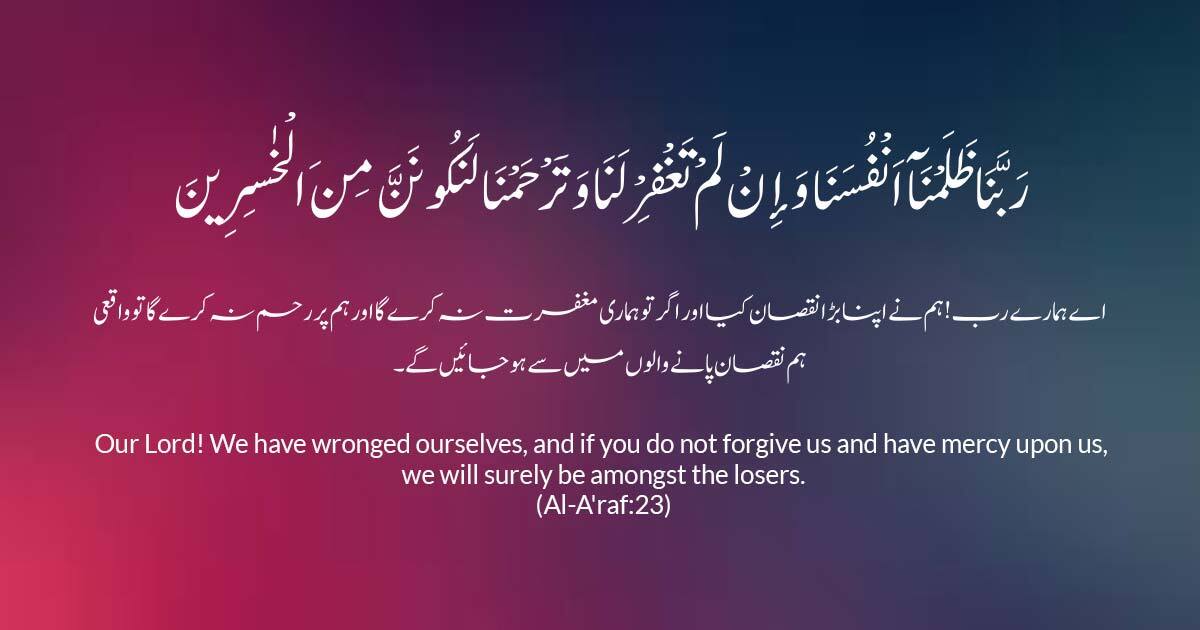

Significance of Rabbana Zalamna Anfusana Dua:
1. Humility and Submission: By admitting wrongdoing, one humbles oneself before the Creator, recognizing His infinite wisdom and authority.
2. Repentance and Forgiveness: The dua serves as a plea for forgiveness, demonstrating sincere remorse and a desire for spiritual purification.
3. Self-Accountability: It encourages introspection and self-reflection, fostering personal growth and moral development.
4. Divine Mercy: Despite human fallibility, Allah's mercy is boundless, and this supplication highlights the hope for redemption through His benevolence.
5. Community and Unity: Reciting this dua collectively strengthens bonds among believers, fostering a sense of shared responsibility and support in striving towards righteousness.
How to Incorporate Rabbana Zalamna Anfusana Dua into Daily Life:
Incorporating the Rabbana Zalamna Anfusana dua into your daily routine is a powerful way to cultivate humility, seek forgiveness, and strengthen your spiritual connection with Allah. Here are practical ways to integrate this supplication into your daily life:
Morning and Evening Adhkar:
1. Begin and end each day with the remembrance of Allah.
2. Recite the Rabbana Zalamna Anfusana dua as part of your morning and evening adhkar (supplications).
3. Use this time for introspection and reflection on your actions and intentions.
Before and After Prayer:
1. Incorporate the dua into your pre and post-prayer rituals.
2. Before Salah (prayer), seek forgiveness for any shortcomings or sins.
3. After Salah, express gratitude for blessings and ask for guidance in staying on the right path.
During Times of Trial:
1. Turn to the dua during moments of difficulty or distress.
2. Use it as a means of seeking solace and strength from Allah.
3. Trust in Allah's mercy and guidance to navigate challenges with patience and resilience.
In Community Gatherings:
1. Recite the dua collectively in congregational prayers or gatherings.
2. Foster a sense of communal repentance and solidarity by acknowledging shared human fallibility.
3. Strengthen bonds with fellow believers through shared supplication and support.
In Personal Reflection:
1. Set aside dedicated moments for personal reflection and introspection.
2. Use the dua as a catalyst for self-improvement and spiritual growth.
3. Reflect on past actions, seek forgiveness for any wrongdoings, and strive to better oneself in the future.
Learn More: Dua for Closing Fast But Not in Ramadan
Conclusion:
The Rabbana Zalamna Anfusana dua serves as a timeless reminder of human fallibility and divine mercy. Through its humble plea for forgiveness and guidance, it encapsulates the essence of repentance and spiritual growth. By incorporating this dua into our daily lives, we strive towards self-improvement, seeking closeness to Allah and His mercy. Let us embrace the profound significance of this supplication as a beacon of hope and redemption on our spiritual journey.
FAQs About RABBANA ZALAMNA ANFUSANA Full Dua,Meaning and Significance:
What is the origin of the Rabbana Zalamna Anfusana dua?
The dua is derived from Surah Al-A'raf (7:23) in the Quran, where Prophet Adam and Eve express remorse for their disobedience to Allah.
Can this dua be recited in any language, or is it preferable in Arabic?
While the original Arabic holds spiritual significance, the essence of the dua can be conveyed in any language, allowing for broader accessibility and understanding.
Is there a specific time or circumstance when this dua is most effective?
The dua can be recited at any time, but it holds particular significance during moments of introspection, repentance, or seeking forgiveness.
How often should one recite the Rabbana Zalamna Anfusana dua?
There is no prescribed frequency; however, incorporating it into daily supplications or during times of reflection is recommended for spiritual growth.
What is the etiquette for reciting this dua?
It is advised to recite the dua with sincerity, humility, and concentration, preferably in a state of ritual purity (wudu), facing the qiblah, and raising hands in supplication if possible.

 United Kingdom
United Kingdom United Arab Emirates
United Arab Emirates Pakistan
Pakistan




